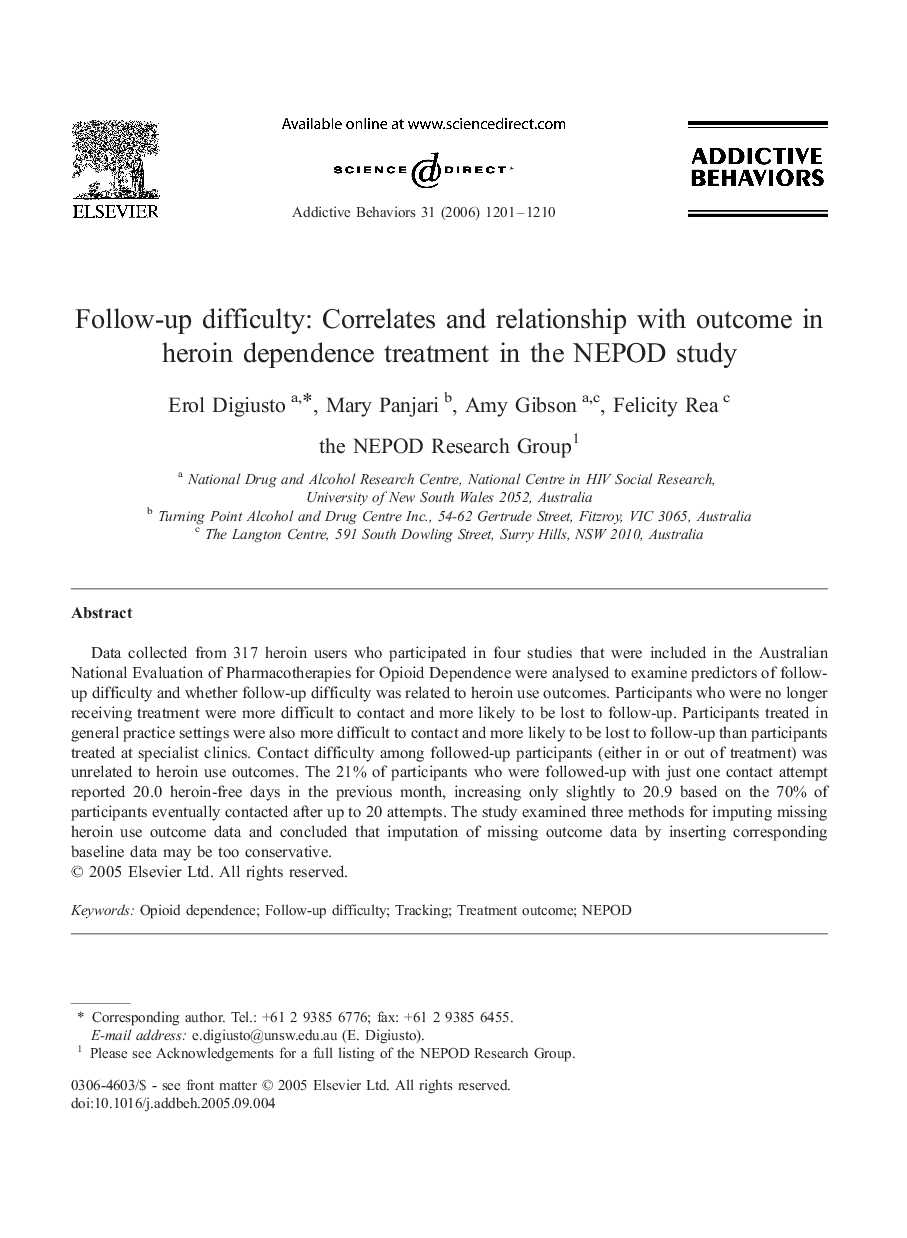| Article ID | Journal | Published Year | Pages | File Type |
|---|---|---|---|---|
| 900448 | Addictive Behaviors | 2006 | 10 Pages |
Data collected from 317 heroin users who participated in four studies that were included in the Australian National Evaluation of Pharmacotherapies for Opioid Dependence were analysed to examine predictors of follow-up difficulty and whether follow-up difficulty was related to heroin use outcomes. Participants who were no longer receiving treatment were more difficult to contact and more likely to be lost to follow-up. Participants treated in general practice settings were also more difficult to contact and more likely to be lost to follow-up than participants treated at specialist clinics. Contact difficulty among followed-up participants (either in or out of treatment) was unrelated to heroin use outcomes. The 21% of participants who were followed-up with just one contact attempt reported 20.0 heroin-free days in the previous month, increasing only slightly to 20.9 based on the 70% of participants eventually contacted after up to 20 attempts. The study examined three methods for imputing missing heroin use outcome data and concluded that imputation of missing outcome data by inserting corresponding baseline data may be too conservative.
